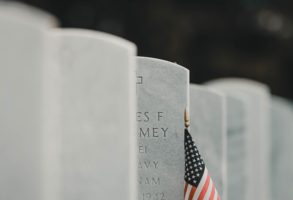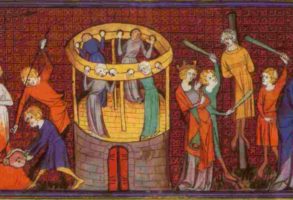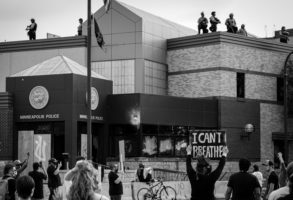Lance Morrow
Henry Grunwald Senior Fellow
Lance Morrow is the Henry Grunwald Senior Fellow at the Ethics and Public Policy Center. His work focuses on the moral and ethical dimensions of public events, including developments in regard to freedom of speech, freedom of thought, and political correctness on American campuses, with a view to the future consequences of such suppressions.
Lance Morrow is the Henry Grunwald Senior Fellow at the Ethics and Public Policy Center. His work focuses on the moral and ethical dimensions of public events, including developments in regard to freedom of speech, freedom of thought, and political correctness on American campuses, with a view to the future consequences of such suppressions.
Morrow’s award-winning essays, appearing in Time, Smithsonian, The New York Times, The Atlantic, and other publications, have offered probing analyses of American culture and politics in the transition from the 20th to the 21st century.
Morrow wrote about every presidential election from Nixon to Obama, wars from Vietnam to Bosnia to the Middle East. Morrow was the author of more than 150 cover stories for Time, including eight Man of the Year articles.
He is currently writing a book about Henry Luce and his magazines’ role in shaping American culture and opinions in the middle third of the 20th century. Morrow is a strong believer in the role of journalism in sustaining freedom and democracy.
The son of an editor of the old Saturday Evening Post and of a Washington columnist for the Knight syndicate, Morrow grew up in Washington. He attended Gonzaga High School, and graduated magna cum laude from Harvard University. For nine years (1996-2005), he was a University Professor at Boston University, where he taught presidential history and the art of the essay.
The author of seven books, Morrow is a two-time winner of the National Magazine Award—the first for his original coverage in essay form of American cultural affairs, the second for his essay that was part of Time‘s special coverage of September 11th.
Morrow’s study of the question of evil, arising among other things from his travel in the Bosnian war zone with Elie Wiesel, was a finalist for the National Magazine Award. Later, he turned the article into a critically acclaimed book—Evil: An Investigation.
Ancestor Appreciation Day
Lance Morrow

July 4 should be an occasion for Americans to put aside the punitive memory of grievance and embrace the reverent memory of gratitude.
Articles
City Journal / July 5, 2022
The End of a 50-Year Chapter
Lance Morrow

Wisdom on the left embraces the idea that last week’s decision in Dobbs was essentially—feloniously—political: an act of Trumpian brutalism. But that formulation is upside down.
Articles
City Journal / June 28, 2022
Could This Be an Antebellum Age?
Lance Morrow

Political manners seem to be growing subservient to the threat of violence. It feels like the 1850s.
Articles
Wall Street Journal / June 28, 2022
Could This Be an Antebellum Age?
Lance Morrow

Political manners seem to be growing subservient to the threat of violence. It feels like the 1850s.
Articles
Wall Street Journal / June 23, 2022
What It’s Like to Be a Victim of Private Planes
Lance Morrow

Barnstorming is no fun when it’s your barn.
Articles
Wall Street Journal / June 8, 2022
Walls, Doors, and Names
Lance Morrow

Memorial Day in an unnerved America
Articles
City Journal / May 31, 2022
Innocence, Violence and the Mystery of Evil
Lance Morrow

Salvador Ramos, the Uvalde school shooter, was a troubled soul. But we are a disturbed society.
Articles
The Wall Street Journal / May 26, 2022
Repetition, with Variations
Lance Morrow

These are history’s morphic resonances.
Articles
City Journal / May 10, 2022
Reality in Primary Colors
Lance Morrow

The savage Russian invasion of Ukraine has called a distracted and divided world back to the basics of life and death.
Articles
City Journal / March 4, 2022
Of Mice and Men
Lance Morrow

I felt remorse over killing a rodent until I learned it could carry the hantavirus.
Articles
Wall Street Journal / February 25, 2022
How Minnesota Went From Tom Sawyer to Huck Finn
Lance Morrow

Minnesota once enjoyed a high degree of social cohesion rooted in the traditions of previous waves of immigrants. But as the region has grown and become more diverse, the Twin Cities in particular developed most of the problems that bedevil much of the rest of urban America.
Articles
The Wall Street Journal / January 21, 2022
